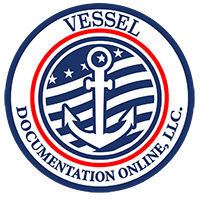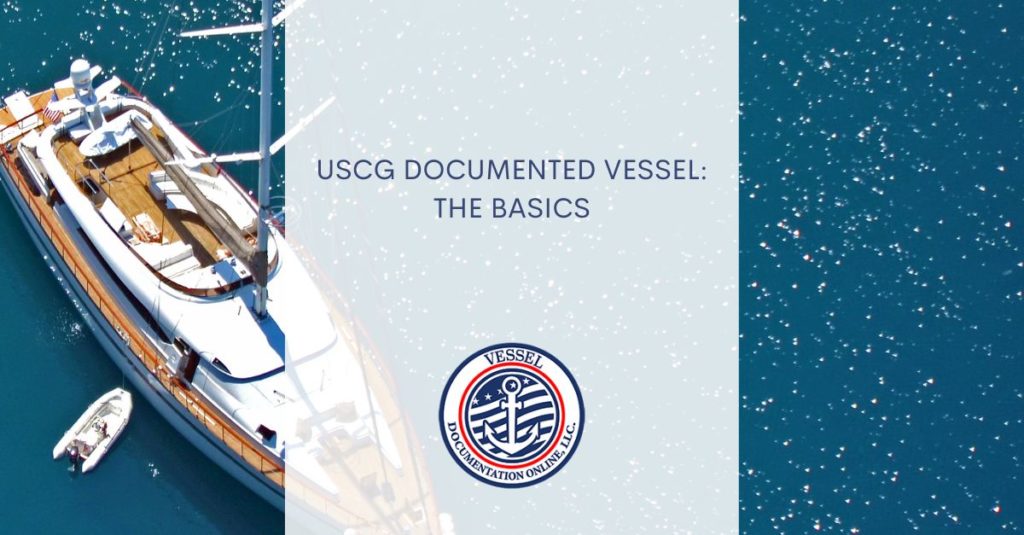Are you thinking about a USCG-documented vessel? If you do so, you will help ensure that you have all the required protections in place, protecting your boat and the crew members on board. However, it might be challenging to know where to begin when it comes to obtaining a vessel documented by the USCG.
For the benefit of any vessel owners interested in getting their paperwork process underway, we have compiled this beginner’s guide to the essentials. In this section, we will go over why it is necessary and what documentation is needed when a vessel needs to be re-documented—any questions you may have about obtaining a vessel documented by the USCG.
What does it mean to be “USCG Documented”?
Some people may have mentioned the concept of a “USCG documented” boat to you. What does this mean, exactly? A boat’s legal standing in the United States is tied to whether or not it has proper documentation.
When a boat is documented, the owner has taken the necessary steps to register the vessel with the USCG, giving them some recourse in case of theft or fire. A boat with proper documentation can be sold and titled with less hassle.
Submit a completed Application for Title, Registration, and Certificate of Documentation (Form CG-1270) to the US Coast Guard, as well as proof of ownership, such as a bill of sale or a previously issued registration card, when documenting a boat. The US Coast Guard has more details about the necessary paperwork on their website.
How Do I Get My Vessel Documented?
It is a time-consuming and challenging procedure to get your ship officially recognized. You should know that this is not a one-and-done deal; if your plans change and you wish to utilize the boat for a different purpose, you will need to repeat the procedure. If, for instance, you have only been operating your boat in fresh water up until now but now wish to take it out on the open sea, you will need to get a new set of paperwork.
It is via its Vessel Documentation program that the US Coast Guard controls the recreational boating sector. With this technology, the US Coast Guard can keep tabs on every detail of a wide variety of vessels, from the bottom of their keels to the top of their antennae.
Every vessel produced or brought into the United States must be registered with the United States Coast Guard. Documentation numbers (also known as “vessel numbers”) are assigned to each vessel. They must be prominently displayed on the vessel’s superstructure such that anybody may see it without needing to travel below deck or into prohibited areas.
Is It Worth It?
Documentation of a vessel is necessary for every boat that will be used for business purposes, although only some people know this (i.e., carrying paying passengers or cargo). A fishing boat, an oil rig support vessel, or a crewed yacht charter for profit are all commercial vessels that must comply with the same regulations as leisure ships.
Maintaining proper paperwork for your USCG-documented container ensures that it meets safety standards. In other words, not only will the passengers be safer, but so will the staff. The safety standards of the firms who employ you to transport their goods or people will be met, and you’ll have an easier time obtaining insurance and licenses of all types.
Your boat will need to pass a physical examination in addition to the application procedure. Simply bringing the ship into a USCG inspection station will be enough for the physical examination.
Are There Different Types of Documentation?
You’ll discover several forms to fill out when looking into how to have your yacht documented. There are two main categories of boaters: those who use their vessels for pleasure (recreational) and those who use them for business (commercial).
In reality, some persons who aren’t legally authorized to possess a USCG-documented vessel due to their immigration or criminal status may still be able to do so if they don’t plan on utilizing it for commercial purposes.
Registration with the Coast Guard and fees and sometimes expensive inspections are mandatory for commercial boat operators. Documentation may also be broken out based on a ship’s propulsion system, the number and kind of people and cargo it carries, and other factors.
If you’d like to learn more about getting your boat USCG documented, please get in touch with the U.S. Vessel Documentation Center by phone. They have a wealth of information that can guide you through the process.





